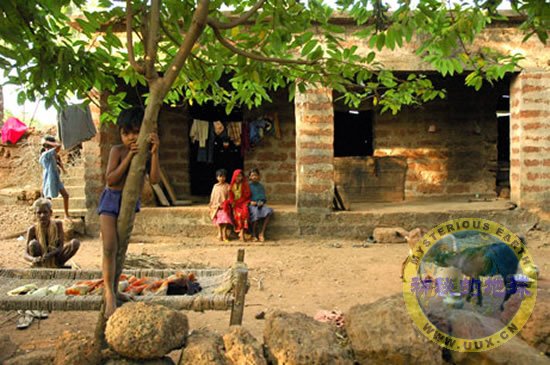India Tribe Law Damaging to Tigers?
A relocated family sits outside their unfinished brick house in the village of Krishnanagar, just outside Chandka Wildlife Sanctuary in Orissa, India, on October 26, 2007.
More than 60 forest-dwelling families were relocated from inside the sanctuary to Krishnanagar about 13 years ago in accordance with India's Wildlife Protection Act (WPA) of 1972. The act states that core tiger-breeding grounds inside sanctuaries must remain human-free.
Observers estimate that in the past few decades the Indian Forest Department has forcefully evicted up to 200,000 forest residents in the name of wildlife conservation.
The Recognition of Forest Rights Act passed in 2006 allows for scientific assessment and identification of "critical wildlife habitats." Forest dwellers are to be relocated from such regions only on the condition that they are involved in every stage of the process and are offered viable livelihood options.
But critics say the rules are ambiguous—and many forest-dwellers are not motivated to relocate, no matter what the offer.
"There is a smell in this earth, we are in peace here," said Regina Drukpa, who lives in a remote mountain inside West Bengal's Buxa Tiger Reserve. "There is just no way we can leave."












